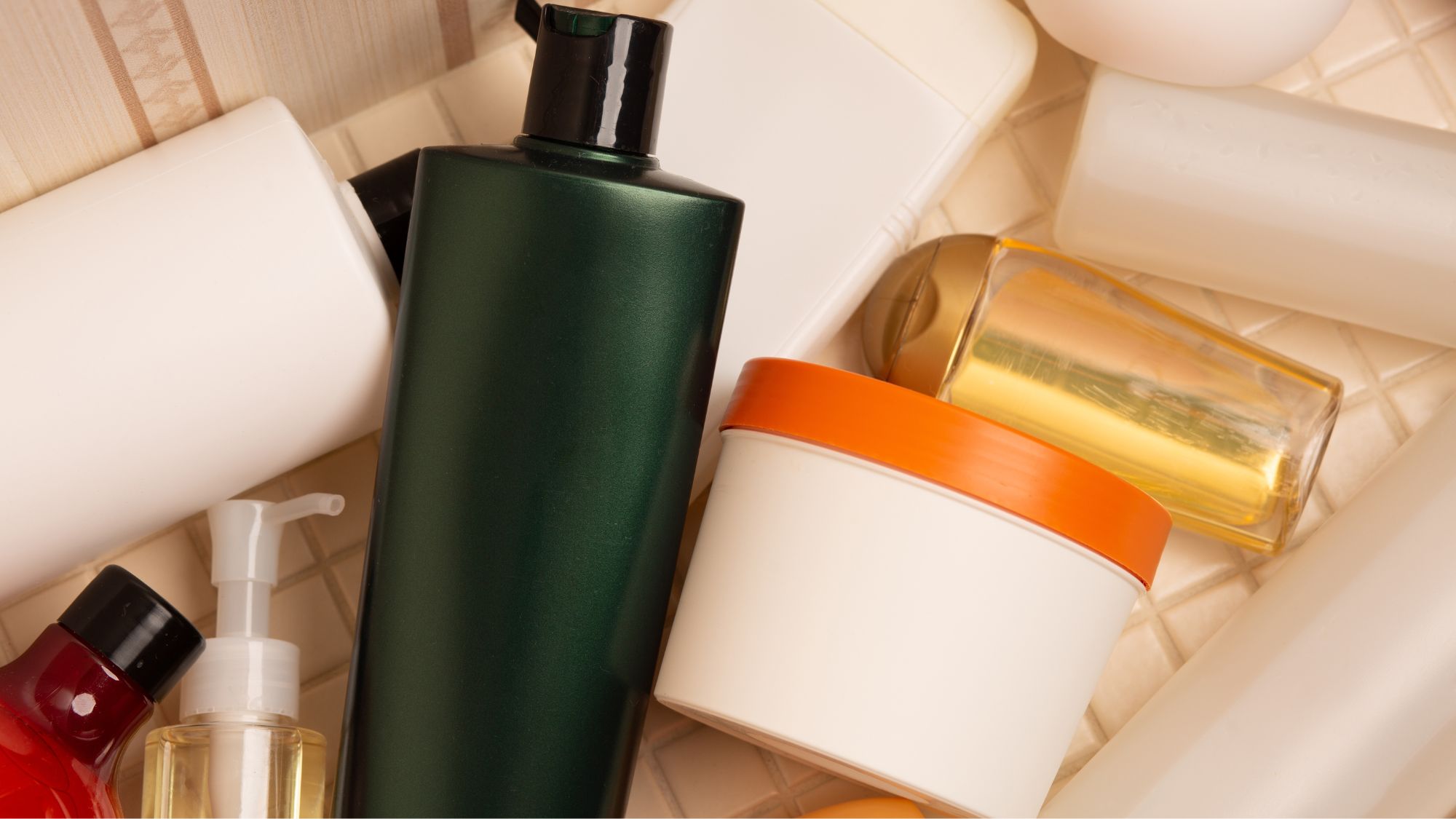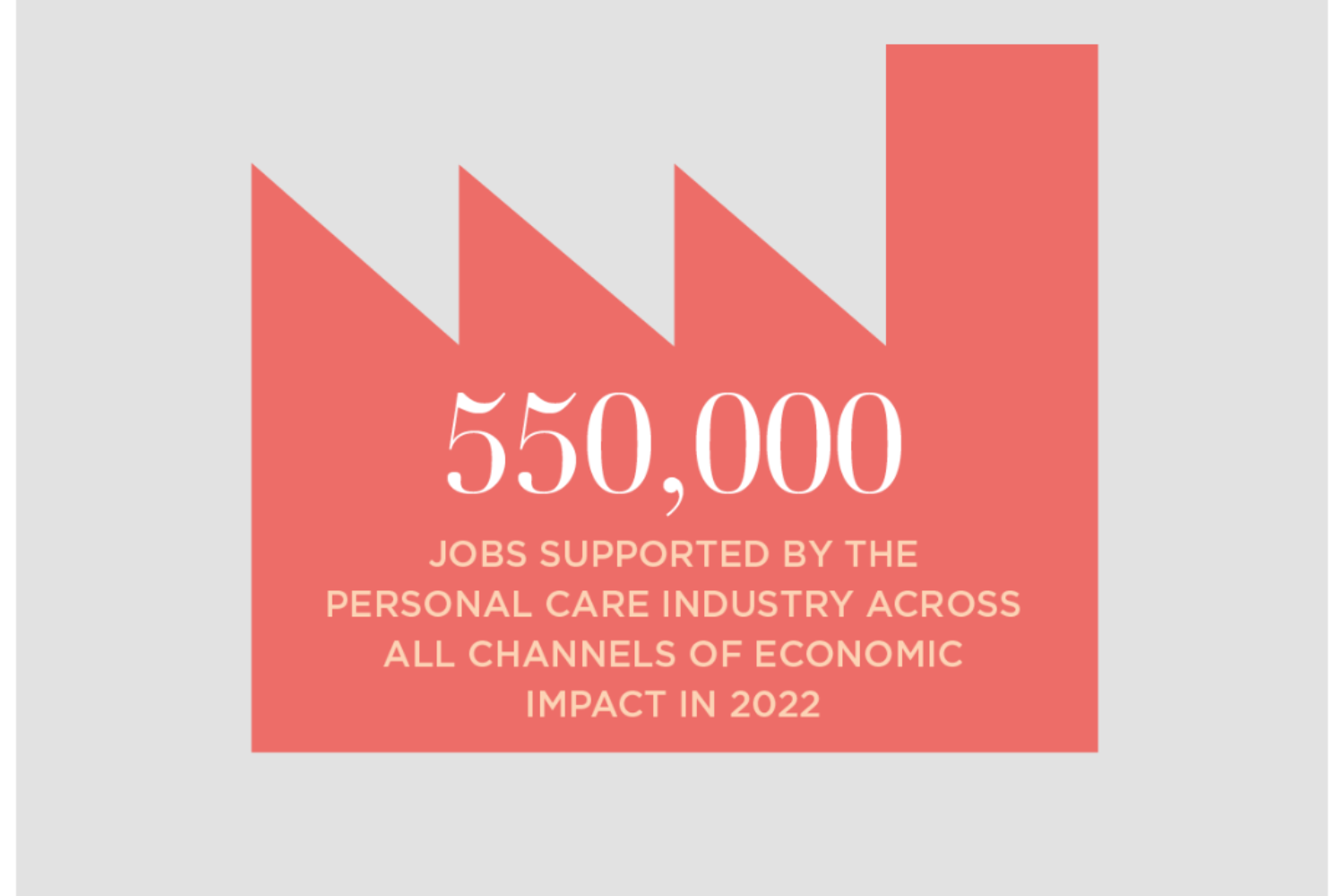The British Beauty Council's Value of Beauty report shows it's time for beauty to taken more seriously
This year’s report reflects the challenges of Brexit, but shows the industry still boasts an entrepreneurial, flexible and resilient workforce


Following the initial Value of Beauty report in 2019, the British Beauty Council commissioned Oxford Economics to refresh its analysis of the economic contribution of the beauty industry and how it has evolved over the last three years—encompassing issues including recovery post covid, Brexit, a cost of living crisis, and the war in Ukraine.
Dedicated to solving beauty’s shared challenges to unlocking opportunities for future generations, the British Beauty Council represents the wider industry by generating conversation with the Government to tackle issues facing all stakeholders, today - and in the future. Let’s take a look at the findings of the British Beauty Council’s 2023 report...
What does the report say?
In the words of Millie Kendall OBE, CEO of the British Beauty Council, “The personal care sector has been devastated by the combination of the pandemic, Brexit and the on-going energy and economic crises. Yet despite all it has had to deal with, it has rebounded impressively. The sector has seen an explosion of new brands on the market with over 500 companies per year with beauty in their name registering with Companies House. We are a predominantly female-led industry, providing a wealth of exciting careers and making a significant contribution to the UK economy whilst genuinely embracing diversity and actively supporting social mobility. The Value of Beauty proves that no one should underestimate the power of UK personal care.”
A post shared by BritishBeautyCouncil (@britishbeautycouncil)
A photo posted by on
The Value of Beauty proves that no one should underestimate the power of UK personal care
Millie Kendall OBE
The extensive report spotlights that in 2022, the personal care industry supported a total contribution of £24.5 billion to the UK economy. To put this into context, beauty’s contribution was greater than that of the UK’s creative, arts, and entertainment sector or the aerospace manufacturing sector, but comparable to that of its air transport sector in 2022.
What’s more, there are 25% more registered small and medium-sized enterprises (SMEs) in 2022 than there were in 2015—and the number of SMEs in the beauty industry has grown almost five times faster than the manufacturing industry in the same time period.
Since the Brexit vote in 2017, personal care exports to Europe have declined by £853 million, but, comparatively, personal care exports to the rest of the world dropped by only £73 million.
Brexit has disproportionately affected SMEs businesses, and most businesses in the personal care industry have fewer than four employees working for them. So we need to work out challenges with EU and build back relationships there
Millie Kendall MBE
Technological progress in personal care has enabled many aspects of operations to become digital, a movement which was further propelled by COVID19. Between 2017 and 2019, the industries revenue online increased by 20%, but the growth was catalysed during the pandemic, driving sales up to 40% in 2022. Interestingly, sales online across the whole economy has dropped back to where it would have been had the pandemic never happened. The gains online were very temporary and according to NPD group 100% of the market gains last year were in retail and not online.
Marie Claire Newsletter
Celebrity news, beauty, fashion advice, and fascinating features, delivered straight to your inbox!
We did pivot as an industry when we needed to, but it didn't stick as people still want to buy their products from shops
Helena Grzesk MBE and COO at British Bea
“When it comes to the people economy of the British beauty industry, we have always championed the rich and diverse employment side of our industry - and it’s good to see that has stayed the same since pre-covid,” says Victoria Brownlee, Chief Policy Officer at British Beauty Council.
The personal care industry supported total employment of over 550,000 in 2022, which is comparable to the employment of the UK’s legal services sector, warehousing and storage activities sector, or hotels and accommodation sector. A quarter of a million of these jobs were supported by the hair and beauty services sector.

The industry plays an important role in educating its workforce, having supported the completion of almost 80,000 recognised qualifications in the 2021/22 academic year alone. Almost two-thirds (64%) of those in the personal care industry are educated to at least A-level or equivalent which compares, for example, to 55% of the retail industry.
However, there is a disconnect. “We are increasing the amount of people gaining the qualifications but we are not getting them into the industry - we are looking at the driving forces and reasons for this – whether that is the minimum wage level or apprenticeship is too low to entice people into the industry,” says Brownlee.
In 2022, the personal care industry made a total tax contribution of £6.8 billion to the UK Treasury. What’s more, direct labour tax contributions made by the beauty industry have increased from 2018 to 2022 (from £2.1 billion to £2.2 billion)—although contributions did peak at £2.4 billion in 2019. These relatively stable contributions throughout the time period prove that, despite a drop in GDP contribution and employment, the industry has continued to contribute substantially to the country's tax revenues due to the labour-intensive nature of the industry.
Diversity is something the British Beauty Council are passionate about. The personal care industry’s employment footprint is 81% female. As such, there are four times as many women working than men and these women are four times more likely to own a business too. This higher female representation means that 86% of business owners in the personal care industry are women, which contrasts with the economy as a whole, where only 35% of business owners are women. What's more, men working in the personal care industry are around six times as likely to have a sexual identity other than heterosexual/straight than men in the wider economy. In the personal care industry, 28.9% of men identify as a sexual identity other than heterosexual/straight, compared to 4.6% in the economy as a whole.
In terms of social mobility, the beauty industry helps to support employment and business opportunities in communities that have relatively high rates of deprivation as its employment footprint is just as large in the poorest third of local authorities as it is in the third with the highest income levels. Businesses are also concentrated in areas with relatively high income deprivation and unemployment versus comparable sectors such as the retail sector as a whole and construction. Moreover, when considering the spread of employment across the UK, employment in the personal care industry directly accounts for more than 1 in every 50 jobs in several local authorities.
Lisa Oxenham is a trailblazing beauty editor, journalist, stylist, and creative director with over 20 years of transformative impact in the beauty industry. As the Beauty and Style Director at Marie Claire UK, she orchestrates high-profile shoots with celebrities and influencers, creating visually stunning and globally resonant content.
A passionate advocate for sustainability, Lisa serves on the Advisory Board for the British Beauty Council's Sustainable Beauty Coalition and the Media Advisory Board. She is also an ambassador for the Soil Association certification and the Amazon Research Institute. Through her "In The Loop" column, she keeps readers informed about the latest advancements in sustainable beauty and supports brands that champion environmental causes, emphasising the need for the beauty industry to reset its priorities.
Lisa's influence extends beyond words; she directs inspiring short films on sustainability and challenges in the beauty industry and is a sought-after public speaker. Recently recognised in the Who’s Who in Natural Beauty 2023, she also champions mental health and eco-conscious practices, demonstrating that glamour and environmental responsibility can coexist beautifully.
-
 How the slogan t-shirt became this season's must-have - and why it's more than just another trend
How the slogan t-shirt became this season's must-have - and why it's more than just another trendNot just another Nineties throwback
By Clementina Jackson
-
 How are Trump’s tariffs affecting the fashion industry?
How are Trump’s tariffs affecting the fashion industry?The fluctuating situation in the US is having very real consequences
By Rebecca Jane Hill
-
 Here's every character returning for You season 5 - and what it might mean for Joe Goldberg's ending
Here's every character returning for You season 5 - and what it might mean for Joe Goldberg's endingBy Iris Goldsztajn